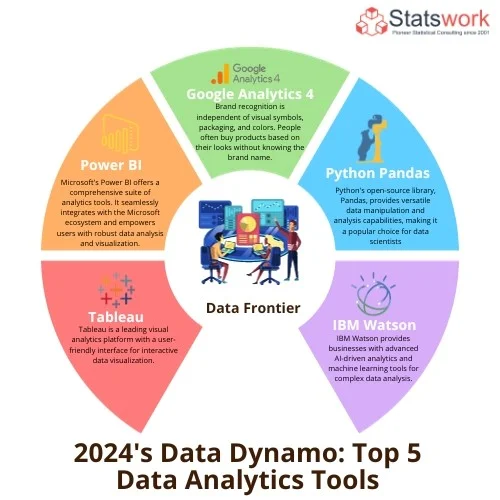Transform Information right into Approaches with Cutting-Edge Analytics
Transform Information right into Approaches with Cutting-Edge Analytics
Blog Article
Maximize Development: Just How Analytics Drive Better Approaches
By using data understandings, organizations can improve their functional techniques, prepare for market changes, and boost client engagement. The obstacle exists not just in collecting information but in effectively interpreting it to drive tangible end results.
Comprehending Information Analytics
Data analytics is a methodical computational evaluation of data that enables companies to uncover significant patterns and understandings. This process incorporates a range of methods, consisting of analytical evaluation, anticipating modeling, and data mining, which collectively aim to change raw information into actionable details - Analytics. By employing these techniques, companies can make enlightened choices that are rooted in empirical proof as opposed to instinct alone
The structure of data analytics lies in its capacity to deal with large quantities of information from varied resources. This includes structured information, such as databases, and unstructured information, consisting of social media communications and customer responses. Through the usage of specialized software and tools, analysts can extract and refine this data efficiently, identifying trends and connections that might not be promptly evident.
Recognizing information analytics likewise entails identifying the relevance of data high quality and stability. Accurate and trusted data is important for purposeful evaluation; hence, companies should apply durable information governance methods. Additionally, the repetitive nature of analytics enables constant improvement and enhancement of techniques, making certain that companies continue to be dexterous when faced with transforming market characteristics and customer behavior.
Key Benefits of Analytics

Among the essential benefits of analytics is its capacity to provide workable understandings. Organizations can quickly evaluate huge quantities of data, discovering patterns that might not be instantly obvious. This aids in preparing for market shifts and adapting methods appropriately. Furthermore, analytics fosters a culture of evidence-based decision-making, decreasing dependence on instinct and guesswork.
An additional significant advantage is enhanced client understanding. Analytics tools make it possible for organizations to segment their audience, track customer habits, and personalize advertising and marketing initiatives. This targeted technique not only enhances consumer engagement but likewise drives greater conversion rates.

Implementing Analytics Strategies
To totally realize the benefits of analytics, organizations should embrace organized methods for implementation. This starts with plainly specifying goals that align with more comprehensive business goals. By developing certain, measurable outcomes, organizations can concentrate their analytics initiatives on areas that yield the greatest roi.
Following, companies must focus on information administration to ensure the integrity and security of the data being analyzed. This involves establishing up procedures for data collection, storage, and gain access to while adhering to pertinent guidelines. Ensuring high-grade data is important for producing purposeful insights.
Moreover, fostering a culture of data-driven decision-making is essential. This calls for training employees to analyze analytics findings and encouraging partnership across departments. They are a lot more most likely to you could try these out incorporate insights into their daily operations. when groups recognize the worth of analytics.
Finally, organizations need to regularly assess and improve their analytics methods. The landscape of information and technology is continuously evolving, and remaining versatile will certainly allow organizations to leverage brand-new tools and methodologies properly. By implementing these structured techniques, companies can make the most of the impact of their analytics initiatives and drive lasting growth.
Tools for Effective Analysis
Efficient analysis depends on a selection of devices that assist in the extraction of understandings from information - Analytics. These tools can range from simple spread sheet applications to sophisticated equipment finding out systems, each serving an one-of-a-kind function in the logical process
Data visualization software, such as Tableau and Power BI, plays a vital duty in changing complex datasets into reasonable visual depictions. These tools make it possible for experts to identify patterns and fads promptly, permitting for more educated decision-making.
Statistical evaluation software application, like R and SAS, offers sophisticated capabilities for performing thorough evaluations, including regression, hypothesis testing, and predictive modeling - Analytics. These functions empower companies to attract significant verdicts from their data, determining potential opportunities and risks
Moreover, database monitoring systems such as SQL and NoSQL databases provide the essential infrastructure for storing and querying big quantities of data successfully. They make sure that information is organized and obtainable for analysis.
Finally, organization knowledge systems incorporate different data sources, providing a thorough sight of business efficiency. By making use of these tools efficiently, services can enhance their logical capacities, allowing them to create techniques that make best use of development and boost total efficiency.
Situation Research Studies of Success
Effective companies typically leverage information analytics to drive impactful approaches, as shown by several notable situation researches. By utilizing these understandings, Netflix visit the website has efficiently customized its material referrals, resulting in boosted customer engagement and customer retention.

Furthermore, Starbucks employs information analytics to figure out optimal store locations and fine-tune its product offerings. By checking out consumer demographics and acquiring patterns, Starbucks successfully recognizes high-potential markets and tailors its menu to neighborhood tastes, driving sales and customer commitment.
These study illustrate that reliable utilization of information analytics can bring about tactical advantages, cultivating development and growth within companies across numerous markets.
Verdict
In conclusion, the integration of analytics right into business approaches significantly improves decision-making procedures and cultivates sustainable growth. The efficient application of analytics tools better supports dexterity and innovation, making it possible for organizations to browse affordable landscapes with higher precision.
Data analytics is an organized computational analysis of information that makes it possible for companies to uncover purposeful patterns and insights.Recognizing data analytics likewise here are the findings includes acknowledging the relevance of data high quality and integrity. Trusted and accurate information is vital for meaningful evaluation; thus, companies should implement durable information administration methods.Following, organizations ought to focus on information administration to make sure the integrity and security of the data being evaluated.Successful organizations often leverage information analytics to drive impactful strategies, as confirmed by several remarkable case research studies.
Report this page